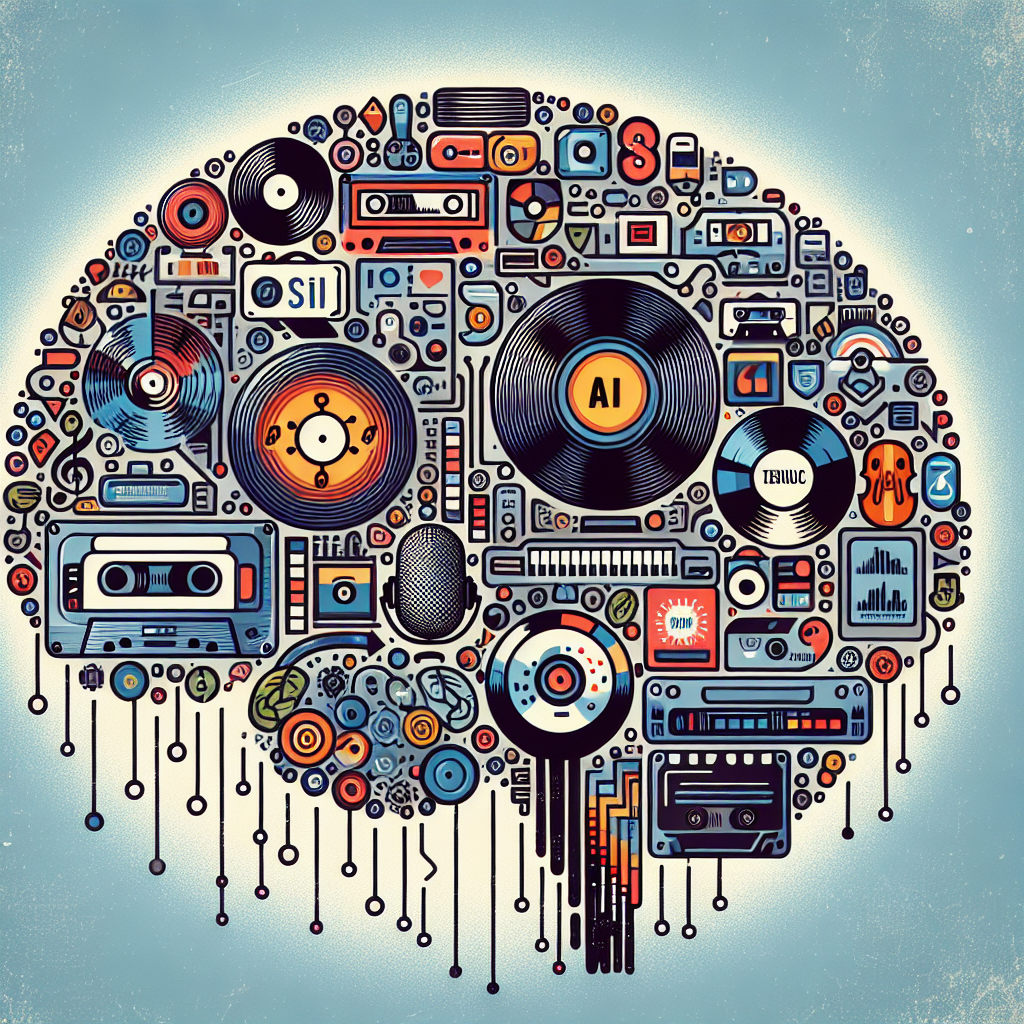In recent years, the music industry has undergone a significant transformation with the rise of artificial intelligence (AI) technology. AI has revolutionized the way music is created, distributed, and consumed, leading to a shift in music consumption patterns. From personalized recommendations to automated music production, AI is shaping the future of the music industry in ways we never imagined.
AI and Music Creation
One of the most significant impacts of AI on the music industry is its ability to assist in music creation. AI algorithms can analyze vast amounts of data to identify trends and patterns in music, helping artists create new and innovative sounds. For example, AI can generate melodies, harmonies, and rhythms based on input from musicians, providing endless possibilities for creativity.
AI can also help streamline the music production process by automating tasks such as mixing and mastering. This not only saves time and resources but also allows artists to focus on their creative vision without getting bogged down by technical details.
AI and Music Distribution
AI has also revolutionized the way music is distributed and consumed. Streaming platforms like Spotify and Apple Music use AI algorithms to analyze user data and provide personalized recommendations to listeners. This has led to a more tailored listening experience, with users discovering new music based on their preferences and habits.
AI has also improved the efficiency of music distribution by optimizing streaming services’ algorithms to deliver music to users more effectively. This has resulted in a more streamlined process for artists to reach their audience and build a fan base.
AI and Music Consumption Patterns
As AI continues to evolve, it is expected to have a profound impact on music consumption patterns. AI algorithms can analyze user data to predict trends in music preferences, allowing streaming platforms to recommend music that matches listeners’ tastes. This personalized approach to music discovery has led to an increase in music consumption and engagement, as users are more likely to discover new music they enjoy.
AI has also made it easier for artists to connect with their fans and build a loyal following. By analyzing user data and engagement metrics, artists can better understand their audience and tailor their music to meet their fans’ preferences. This has led to a more interactive and collaborative relationship between artists and their fans, with AI acting as a bridge between the two.
FAQs
Q: How is AI changing the music industry?
A: AI is revolutionizing the music industry by assisting in music creation, distribution, and consumption. It is helping artists create new and innovative sounds, providing personalized recommendations to listeners, and optimizing music distribution processes.
Q: Will AI replace human musicians?
A: While AI can assist in music creation, it is unlikely to replace human musicians entirely. AI can generate melodies, harmonies, and rhythms based on input from musicians, but human creativity and emotion are essential elements of music that AI cannot replicate.
Q: How can artists benefit from AI technology?
A: Artists can benefit from AI technology by using it to streamline the music production process, reach a wider audience through personalized recommendations, and better understand their fans’ preferences. AI can help artists create new and innovative music, connect with their fans, and build a loyal following.
Q: What are the potential challenges of AI in the music industry?
A: Some potential challenges of AI in the music industry include concerns about data privacy and security, the impact on traditional music distribution channels, and the potential for AI to homogenize music and limit creativity. It is essential for stakeholders in the music industry to address these challenges and ensure that AI is used responsibly and ethically.
In conclusion, AI is shaping the future of music consumption patterns by revolutionizing the way music is created, distributed, and consumed. From personalized recommendations to automated music production, AI is transforming the music industry in ways that benefit artists, fans, and stakeholders alike. As AI technology continues to evolve, it is essential for the music industry to embrace these changes and adapt to the new possibilities that AI offers.

